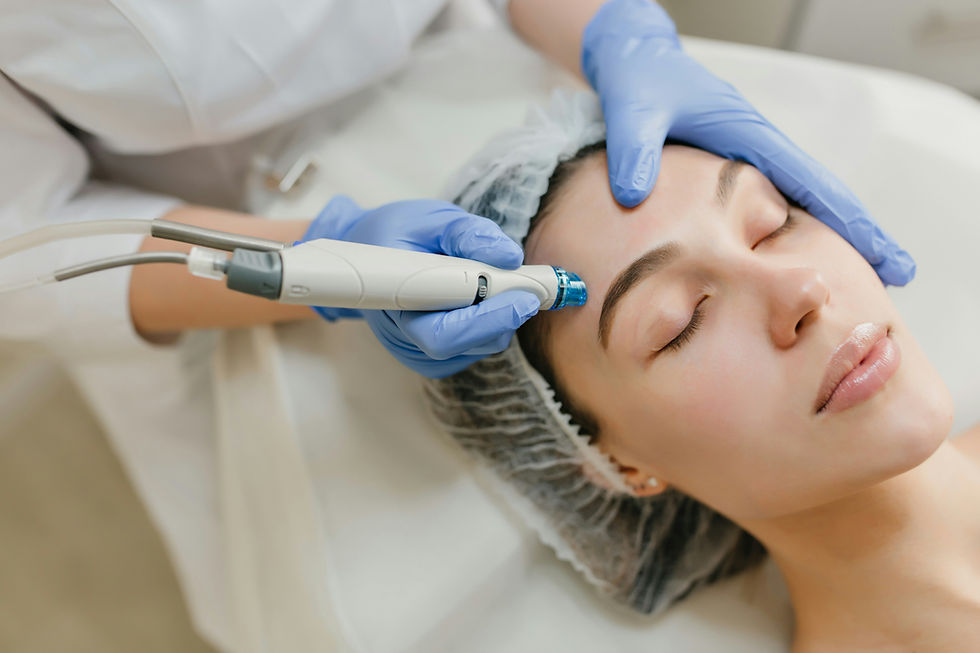Why Dental Cleanings Are Essential
- anikapearlnecosia
- Nov 11, 2022
- 3 min read
Updated: Nov 18, 2022
Dental cleaning is performed when you visit your dentist. It can be part of a regular checkup or can be scheduled separately. Modern tools and materials are used to clean your teeth thoroughly. They also detect oral cancer. This is a very important procedure. Your dentist will use various tools to clean your teeth properly. Visit Woodlands Dental learn more.
Prevention
Routine dental cleanings are essential for the proper maintenance of good oral health. These visits will help prevent cavities and gum disease. They will also remove plaque and tartar that can damage the soft tissues and bone under the gums. In addition, routine cleanings can help fight against bad breath. Therefore, you will want to schedule these visits every six months for maximum benefit.
Regular dental cleanings help remove plaque and tartar that can accumulate over time on your teeth. These deposits carry acids that can damage the enamel of your teeth. Bacteria in this buildup can also cause gum inflammation. This inflammation can result in tooth loss. Fortunately, dental cleanings can help prevent the onset of periodontal disease.
Regular dental cleanings also prevent gum disease and tooth decay. A dentist can spot problems early and treat them before they become serious. During a routine cleaning, a dentist will remove plaque that causes cavities. During a routine cleaning, a dentist will also clean your teeth thoroughly.
Prevention of Gum Disease
A good oral hygiene routine is essential to prevent gum disease from progressing to an advanced stage. When left untreated, gum disease can lead to bone loss, gaps between teeth, and even a shift in facial features. It can also lead to other serious health conditions. The bacteria and inflammation caused by gum disease can weaken your immune system and make you susceptible to other infections. It can also lead to diabetes, heart disease, and stroke.
Healthy eating is another important aspect of prevention. A balanced diet can prevent tooth decay. Avoid consuming foods that are high in sugar and carbohydrates. These foods contain bacteria that feed on sugars and starches, releasing acids that eat away at tooth enamel. Eating a balanced diet is important as it helps the immune system fight infections and restores damaged tissues. It is also important not to clench your teeth or grind them. These actions put undue pressure on the supporting tissues, which can cause more damage.
Preventing gum disease with regular dental checkups can help you avoid costly treatments in the future. A professional cleaning and exam every six months can help you maintain a healthy mouth. It will also help you prevent periodontal disease.

Prevention of Bad Breath
One of the best ways to prevent bad breath is to schedule regular dental cleanings. These cleanings are important for a variety of reasons, including a reduction in the risk of developing gum disease, which can lead to the development of cavities. In addition, by examining your mouth regularly, dentists are able to detect problems before they become serious. They can refer you to a primary care physician for further evaluation if necessary.
Routine dental cleanings should be made at least twice a year and every six months. These cleanings will not only remove tarter and plaque from your teeth but also check for early signs of cavities and gum disease. In addition to preventing bad breath, regular cleanings will keep your teeth in good health, and your dentist can recommend products to keep your breath fresh.
Dental cleanings will also prevent the formation of bacteria that cause bad breath. Bacteria that live on your teeth feed on the sugar in your mouth and produce a foul smell. To prevent bad breath, you should visit your dentist twice a year for regular cleanings. You can also avoid the problem by brushing and flossing regularly.
Detection of Oral Cancer
Detection of oral cancer with dental services is a common practice in dentistry, but not all patients receive screenings. While early detection is vital to save lives, symptoms are not always immediately apparent. Sometimes, a trained expert must spot the first signs of oral cancer. To ensure accurate diagnosis, dentists should have a thorough knowledge of oral cancer symptoms.
Oral cancer symptoms vary with the stage of the disease but can include the following:
A sore throat.
Difficulty swallowing.
Changes in voice.
A lump in the neck.
A persistent bad breath.
These symptoms can last up to two weeks. According to the American Cancer Society, 53,000 Americans will be diagnosed with oral cancer this year, and 20 percent will die. It's, therefore, important to have a regular checkup with your dentist to ensure you stay healthy and well-informed.
Many people think of oral cancer as a disease that affects older people. However, younger people are the fastest-growing segment of people with oral cancer. This is because HPV, a sexually transmitted disease, is incredibly common in younger adults. Therefore, a dentist can screen patients for the symptoms of this disease and help them develop a prevention plan.



Comments